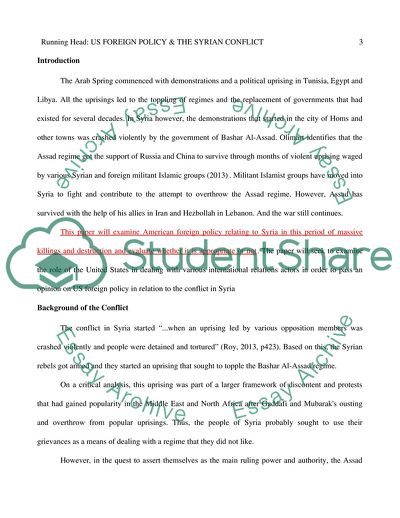Cite this document
(US Foreign Policy and the Syrian Conflict Literature review Example | Topics and Well Written Essays - 2500 words, n.d.)
US Foreign Policy and the Syrian Conflict Literature review Example | Topics and Well Written Essays - 2500 words. https://studentshare.org/history/1806559-authentic-assessment-paper
US Foreign Policy and the Syrian Conflict Literature review Example | Topics and Well Written Essays - 2500 words. https://studentshare.org/history/1806559-authentic-assessment-paper
(US Foreign Policy and the Syrian Conflict Literature Review Example | Topics and Well Written Essays - 2500 Words)
US Foreign Policy and the Syrian Conflict Literature Review Example | Topics and Well Written Essays - 2500 Words. https://studentshare.org/history/1806559-authentic-assessment-paper.
US Foreign Policy and the Syrian Conflict Literature Review Example | Topics and Well Written Essays - 2500 Words. https://studentshare.org/history/1806559-authentic-assessment-paper.
“US Foreign Policy and the Syrian Conflict Literature Review Example | Topics and Well Written Essays - 2500 Words”. https://studentshare.org/history/1806559-authentic-assessment-paper.


